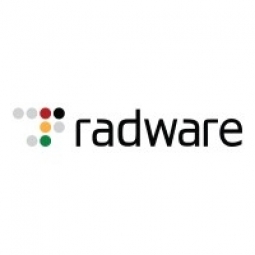Customer Company Size
Large Corporate
Product
- Radware’s Alteon
- Radware’s DefensePro
Tech Stack
- SSL offloading
- Load balancing
- DDoS protection
Implementation Scale
- Enterprise-wide Deployment
Impact Metrics
- Cost Savings
- Productivity Improvements
Technology Category
- Cybersecurity & Privacy - Network Security
Applicable Industries
- Finance & Insurance
Applicable Functions
- Business Operation
Use Cases
- Cybersecurity
- Fleet Management
Services
- System Integration
- Cloud Planning, Design & Implementation Services
About The Customer
This multinational banking and financial services company is one of the largest worldwide banks and is ranked in the Fortune 500 list of the largest global corporations. It has over 18,000 domestic branches and 191 overseas offices spread across 36 countries, with 200,000 employees. Internet banking and the quality of user experience are key to this bank’s business. With 400 million users dependent on the bank’s applications to access accounts and related services, the bank must provide high application performance 24x7 for over 180 applications to keep customers satisfied.
The Challenge
The bank faced a number of challenges, including network expansion, increased dependency on web applications and an increase in the number of cyberattacks. With 400 million users dependent on the bank’s applications to access accounts and related services, the bank must provide high application performance 24x7 for over 180 applications to keep customers satisfied. Due to high network traffic volumes, its existing load balancing solution couldn’t handle the connections per second. Another challenge for this bank is scaling its network to manage international business. Internet banking spans various individual banking divisions, including retail, corporate and consumer, each of which has its own applications and requirements. The bank, which also has to handle large traffic loads from consumer and enterprise customers, was looking for a scalable solution to manage traffic and applications for more than a dozen departments across two data centers. The third challenge for the bank is application security to maintain service availability. Protection of mission-critical application is critical to stay in business. The majority of network traffic that the bank receives is encrypted, which necessitated having the ability to inspect that traffic for attacks.
The Solution
The bank evaluated a series of ADC vendors with SSL offloading and load balancing solutions, including F5 and Citrix. Radware was chosen because of its ability to support a scalable, virtualized environment that could handle high traffic loads and also safeguard the bank’s applications. Radware’s ADC solution, Alteon, outperformed the competition on connections per second and throughput levels. In addition, the bank selected Radware’s DDoS protection solution, DefensePro, coupled with SSL attack mitigation to protect the bank’s mission-critical applications from multivector and encrypted attacks. In total, the bank purchased 25 Alteons and four DefensePro devices with SSL attack mitigation. Radware provided a virtualized environment, so the bank can optimize its network using less hardware and centrally manage its network based on the requirements of each application. This provided full visibility into all network devices and the flexibility to use resources when and where they are required. Radware Alteon provides a solution for SSL traffic offloading to reduce latency and improve performance because servers inside the network do not have the capacity to process high amounts of encrypted traffic. For protection against encrypted attacks, Radware’s DefensePro SSL attack mitigation solution supports all common versions of SSL and TLS and protects from all types of encrypted attacks, including TCP SYN Floods, SSL Negotiation Floods, HTTPS Floods and encrypted web attacks. Radware’s solution is also able to protect the bank from the most advanced threats in the market today. The solution provides automated machine learning attack protection and mitigation to protect the bank’s network and applications from zero-day attacks, IoT botnet and advanced threats such as DNS, Burst, low and slow and randomized attacks.
Operational Impact
Quantitative Benefit

Case Study missing?
Start adding your own!
Register with your work email and create a new case study profile for your business.
Related Case Studies.

Case Study
Real-time In-vehicle Monitoring
The telematic solution provides this vital premium-adjusting information. The solution also helps detect and deter vehicle or trailer theft – as soon as a theft occurs, monitoring personnel can alert the appropriate authorities, providing an exact location.“With more and more insurance companies and major fleet operators interested in monitoring driver behaviour on the grounds of road safety, efficient logistics and costs, the market for this type of device and associated e-business services is growing rapidly within Italy and the rest of Europe,” says Franco.“The insurance companies are especially interested in the pay-per-use and pay-as-you-drive applications while other organisations employ the technology for road user charging.”“One million vehicles in Italy currently carry such devices and forecasts indicate that the European market will increase tenfold by 2014.However, for our technology to work effectively, we needed a highly reliable wireless data network to carry the information between the vehicles and monitoring stations.”

Case Study
Safety First with Folksam
The competitiveness of the car insurance market is driving UBI growth as a means for insurance companies to differentiate their customer propositions as well as improving operational efficiency. An insurance model - usage-based insurance ("UBI") - offers possibilities for insurers to do more efficient market segmentation and accurate risk assessment and pricing. Insurers require an IoT solution for the purpose of data collection and performance analysis

Case Study
Smooth Transition to Energy Savings
The building was equipped with four end-of-life Trane water cooled chillers, located in the basement. Johnson Controls installed four York water cooled centrifugal chillers with unit mounted variable speed drives and a total installed cooling capacity of 6,8 MW. Each chiller has a capacity of 1,6 MW (variable to 1.9MW depending upon condenser water temperatures). Johnson Controls needed to design the equipment in such way that it would fit the dimensional constraints of the existing plant area and plant access route but also the specific performance requirements of the client. Morgan Stanley required the chiller plant to match the building load profile, turn down to match the low load requirement when needed and provide an improvement in the Energy Efficiency Ratio across the entire operating range. Other requirements were a reduction in the chiller noise level to improve the working environment in the plant room and a wide operating envelope coupled with intelligent controls to allow possible variation in both flow rate and temperature. The latter was needed to leverage increased capacity from a reduced number of machines during the different installation phases and allow future enhancement to a variable primary flow system.

Case Study
Automated Pallet Labeling Solution for SPR Packaging
SPR Packaging, an American supplier of packaging solutions, was in search of an automated pallet labeling solution that could meet their immediate and future needs. They aimed to equip their lines with automatic printer applicators, but also required a solution that could interface with their accounting software. The challenge was to find a system that could read a 2D code on pallets at the stretch wrapper, track the pallet, and flag any pallets with unread barcodes for inspection. The pallets could be single or double stacked, and the system needed to be able to differentiate between the two. SPR Packaging sought a system integrator with extensive experience in advanced printing and tracking solutions to provide a complete traceability system.

Case Study
Transforming insurance pricing while improving driver safety
The Internet of Things (IoT) is revolutionizing the car insurance industry on a scale not seen since the introduction of the car itself. For decades, premiums have been calculated using proxy-based risk assessment models and historical data. Today, a growing number of innovative companies such as Quebec-based Industrielle Alliance are moving to usage-based insurance (UBI) models, driven by the advancement of telematics technologies and smart tracking devices.

Case Study
MasterCard Improves Customer Experience Through Self-Service Data Prep
Derek Madison, Leader of Business Financial Support at MasterCard, oversees the validation of transactions and cash between two systems, whether they’re MasterCard owned or not. He was charged with identifying new ways to increase efficiency and improve MasterCard processes. At the outset, the 13-person team had to manually reconcile system interfaces using reports that resided on the company’s mainframe. Their first order of business each day was to print 20-30 individual, multi-page reports. Using a ruler to keep their place within each report, they would then hand-key the relevant data, line by line, into Excel for validation. “We’re talking about a task that took 40-80 hours each week,” recalls Madison, “As a growing company with rapidly expanding product offerings, we had to find a better way to prepare this data for analysis.”



